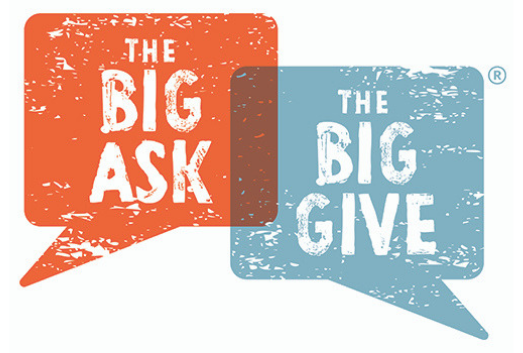
Fresenius Medical Care Foundation Helps Connect Transplant Patients with Living Donors
“Would you be willing to donate one of your kidneys?”
It’s a difficult question to answer and maybe even more difficult for someone in need of a transplant to ask. The National Kidney Foundation (NKF), with support from the Fresenius Medical Care Foundation (Foundation) is now expanding a program that aims to help people living with chronic kidney disease navigate this big ask.
The Foundation is supporting the expansion of THE BIG ASK: THE BIG GIVE in-person trainings to 15 new locations, while promoting the program in Fresenius Kidney Care dialysis centers in regions around the country.
“We support the National Kidney Foundation’s THE BIG ASK: THE BIG GIVE program because we want all people living with chronic kidney disease to have the opportunity to live a full and meaningful life,” said Bill Valle, CEO of Fresenius Medical Care North America and President of the Foundation. “Our goal is to ensure that everyone impacted by kidney disease has access to the right treatment at the right time – including transplant, home dialysis, and in-center dialysis – giving them their lives back.”
In the U.S., nearly 100,000 people are currently on a waitlist for a kidney donor. On average, over 3,000 new patients are added to the kidney waiting list each month, according to the U.S. Health Resources and Services Administration. The average wait time for a kidney from a deceased donor varies widely by state, but the median wait time nationally for a person’s first transplant is about four years, according to the U.S. Renal Data System.
The aim of providing these free trainings that help kidney patients and families find a living donor is to empower patients as well as expand the donor base. In-person trainings teach people living with kidney disease and their family and friends how to share their story and make a “big ask” to their friends, loved ones, or community to consider making a “big give,” a living kidney donation.
The four-hour training takes patients through seven strategies, which emphasize ways to share their story and let people know how they can help:
- Bust Myths: educates participants about the myths of living donation and transplant.
- Know the Facts: provides in-depth knowledge about donation and transplant.
- Create Your Story: shows participants examples of how others have shared their story and how it resulted in a donor coming forward.
- Spread the Word: discusses the many ways in which participants can share their story and shares successful examples of what others have done.
- Build a Network: encourages participants to think about who can help them spread the word and shows them they’re not in it alone.
- Learn from Others: a real-life panel of transplant recipients and living donors share their journey and answer questions from the audience.
- Create an Action Plan: each participant develops a plan of action to use as soon as they get home to best share their story.
The NKF also offers follow-up resources attendees can use for questions and support, such as the NKF Cares helpline, peer mentoring program, online communities, and website.
In a recent public service announcement series developed by the NKF, kidney transplant patient Alan says: “My wife Aisha and I followed the advice, reached out to our social networks to find a donor, and I had a successful kidney transplant. I am so thankful to my donor and to the NKF for helping me find my way to her.”
The Foundation is supporting and promoting NKF’s BABG platform in the following markets with in-person workshops to be held throughout 2019: Charleston, SC; Charleston, WV; Chicago, IL; Dallas, TX; Denver, CO; El Paso, TX; Los Angeles, CA; Louisville, KY; Minneapolis, MN; Columbia, MO; Orange County, CA; Philadelphia, PA; Phoenix, AZ; Washington, DC; and Worcester, MA. For information about events as they are scheduled, visit www.kidney.org/events



